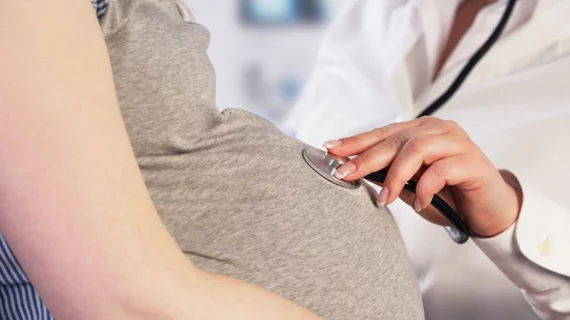COVID-19 infection in pregnant mothers does not harm developing fetuses’ brains
Mild or moderate COVID-19 in pregnant mothers does not harm the brain of developing fetuses, according to new research presented Tuesday at RSNA.
German radiology experts reached this conclusion after analyzing fetal MRIs from 33 women who contracted the virus while bearing a child. Two radiologists reviewed the scans determining that brain development was age-appropriate in all fetuses.
“In our study, there was no evidence that a maternal SARS-CoV-2 infection has any effect on the brain development of the unborn child. This fact should help to reassure affected parents,” senior author Sophia Stöcklein, MD, with the Ludwig Maximilian University of Munich’s Department of Radiology, said in an RSNA announcement.
Stöcklein noted that some women have expressed concern that the novel coronavirus could impact development, similar to other viral infections. But little is known about the consequences of transmission from mother to fetus, prompting her team to pursue this investigation.
Mothers in the study were 28 weeks pregnant on average while symptoms occurred at 18 weeks. Common complaints included loss of smell and taste, dry cough, fever and trouble breathing. The study did not include pregnant women with more severe COVID cases, and the authors urged expectant mothers to still get vaccinated against the virus to protect themselves and their babies.
“Any potential side effects are manageable, even in pregnant women,” said “Stöcklein, whose team plans to follow the subjects for the next five years. “Therefore, despite the encouraging results of our study, pregnant women should strongly consider vaccination.”

